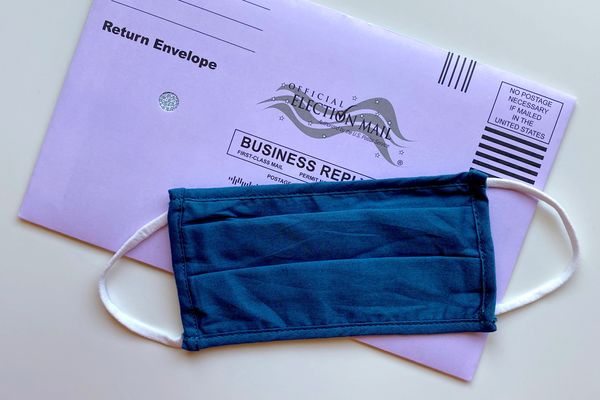Some say our lives are merely sequential moments of impact – instances in which our realities are so severely shaken that our identities are redefined, morphed and modified by the sheer force of a situation. In the context of our generation’s political identities, the 2020 presidential election is one of those moments.
For most college students, this was their first presidential election as eligible voters, and young voters' enthusiasm was at an all-time high. At Furman, The Paladin released a survey in which 94% of eligible students intended to vote this year, as opposed to the 30% recorded in the previous election cycle.
On campus, the excitement surrounding the election was palpable. Students proudly displayed I Voted stickers on any and all viable surfaces. Some classes were cancelled in anticipation of the big night. The administration even sent out two emails pleading with community members to act responsibly and considerately on Nov. 4, no matter the result.
On Nov. 3, Furman was electrified by the democratic spirit. College students saw this election as their opportunity to be a part of history, to help write the nation’s proceeding narrative. In a time of wide-spread confusion and agitation, participation was invigorating. Voting spurred feelings of control in a time full of uncontrollable variables. Unfortunately, this elation was fleeting, as all feelings of influence quickly dispersed as the events of the night unfolded.
Now, in the wake of post-election exhaustion and sleepless nights, campus appears blanketed by mass feelings of disillusion. Though Joe Biden has won, it feels as though the collective “we the people”, specifically we the college students, have lost.
We have lost because the “one voice one vote” ideology that is crucial to the nation’s democratic system is being attacked. Because calls are being made and votes neglected for the sake of a party’s political agenda. Because the very first election that many of our generation has had the privilege to participate in could be tainted with ideas entirely undemocratic in nature.
Our assumption that a free and fair election will always ensue, and that power will forever be adjudicated in accordance with the nations’ collective voice, is being challenged.
Voting, the sacred privilege of Americans and ultimate vessel for the citizen’s voice, is no longer an untouchable entity, above the throngs of messy politicians and malfunctioning institutions. The current popularity of “Count Legal Votes” proves as much — standard aspects of elections, like counting votes after election day, are being portrayed as nefarious and illegal. Though these cries citing injustice have largely been disproven, their very existence should be a harbinger for what is to come; a sign that the nation’s polarization has leached into what was perhaps the last untainted vestige of American democracy.
Recognizing this erosion, the path forward for youth seems split. We can abandon hope in the current system or we can reinvest, aiding a process that might never right itself. Yet unlike other aspects of the political system, this decision truly lies in our hands. By 2028, Millennials and Gen-Z will form a majority of the electorate. New generations, our generations, will have the power to restructure the political reality created by baby boomers.
The lessons from this election will undoubtedly influence how we utilize this authority. And while this process has certainly not reached a terminus, two themes have crystallized as a result of the past days.
The first is a feeling of inefficacy. Right now, it is hard to feel like a participant in the process. Rather, it feels as though our voices are drowned out by those of previous generations. This will soon change, as turnover is inevitable. Therefore, theme one seems easily addressable.
The second takeaway is much less simple, and consequently less solvable. America’s youth are entering a broken system; the sacredness of voting has faltered. It has not failed but has very much stumbled.
How the nation will proceed from this inflection point is still unclear. However, it is safe to say the path forward will soon be dictated by a new coalition of voters, a younger and impassioned group – our group.
Let us not regard this election as merely a bump in the road of American democracy — this is a moment of impact. Therefore, it should prove defining.
